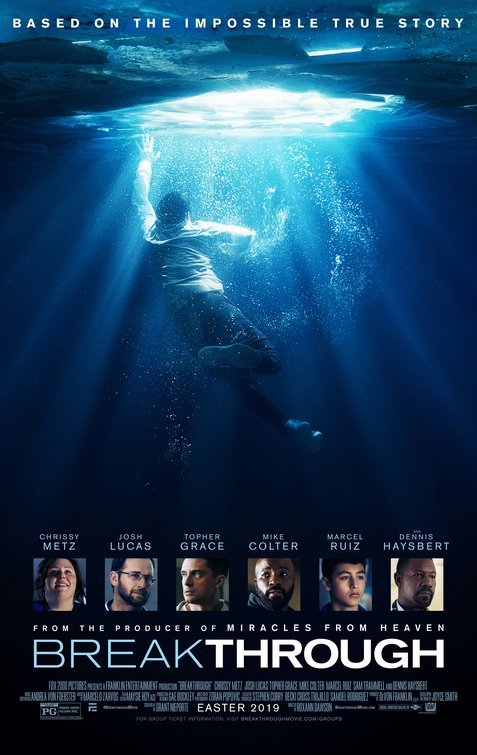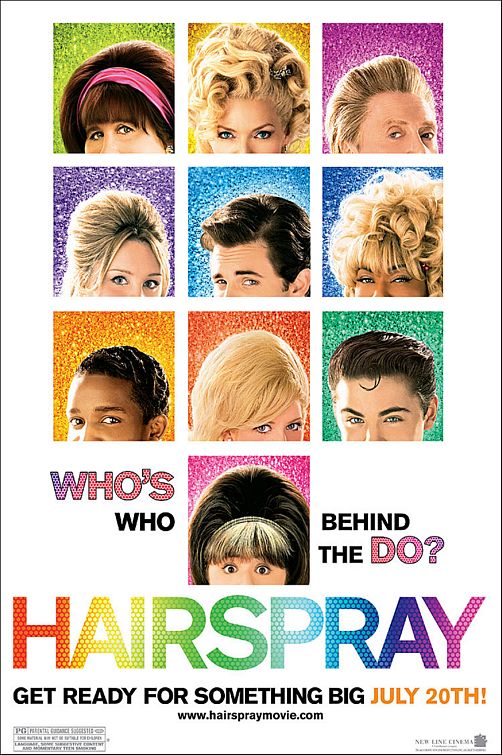"Upbeat but Mixed"
| None | Light | Moderate | Heavy | |
|---|---|---|---|---|
| Language | ||||
| Violence | ||||
| Sex | ||||
| Nudity |
What You Need To Know:
The acting, singing, dancing, and some subject matter are taken to the extreme of melodrama. Viewers may find this style hard to appreciate at first, but it proves effective within the nostalgic environment of the movie. Despite the strong stance against racism and segregation, a relatively minor Christian character is portrayed in a negative light. The movie also has a mixed pagan and Romantic worldview with a few obscenities and profanities, so MOVIEGUIDE® advises strong caution.
Content:
(PaPa, RoRo, BB, AB, LL, V, S, AA, D, MM) Mixed pagan and Romantic worldview with some positive references to God being the source of hope and help and some strong moral elements against racism and racial segregation, but with anti-Christian elements where a straight-laced Christian female character is viewed in a negative stereotypical light because she believes dancing and having fun is sinful; five obscenities and eight light profanities; minimal violence during a march against segregation; one scene where a female character attempts to seduce a male character that depicts inappropriate proximity, some suggestive comments, some sexual dance moves are performed throughout the movie, and heterosexual couples are shown kissing as well; no nudity; a drunken man is bypassed during the opening number; momentary teen smoking; and, teenagers lie, sneak out, disobey their parents’ wishes, disrespect authorities, etc., all in the name of a “worthy” cause.
More Detail:
HAIRSPRAY is an upbeat musical based on the 1988 screenplay by John Waters and the 2002 musical by Mark O’Donnell and Thomas Meehan. It begins with the popular number “Good Morning Baltimore” by Nikki Blonsky in her debut performance as Tracy Turnblad, an overweight teenager having problems fitting into society.
The movie follows Tracy in a coming-of-age story of how she fearlessly reaches for her dreams of being a star and seeing the end of racial segregation. With help from her friend, Penny Pingleton, Tracy wins a spot on the local rock and roll and fights to make the show integrated with white and black teenagers dancing together.
The acting, singing, dancing, and even some subject matter are taken to the extreme of melodramatic. Although viewers may find this style hard to get used to, it is consistent throughout the movie and proves effective within the nostalgic environment that the movie creates.
A reoccurring message of embracing different is present within the content. Tracy is constantly criticized for her state of being overweight, and how popular culture will not accept her. The film reveals that the teenagers of Baltimore do fall in love with her, even more so than the skinny females. “Different” is additionally depicted in terms of race relations. The action finds its beginning and ending on the city streets of 1960s Baltimore. Needless to say, African Americans are less than assimilated at this point in time. One of the movie’s themes addresses the need to desegregate television and society.
The movie’s music is as infectious and exciting. Show stopping musical numbers like “Run and Tell That” and “Welcome to the 60s” are sure crowd-pleasers. “I Know Where I’ve Been,” performed by Queen Latifah, reigns as one of the most powerfully moving tracks presented in the film. The surprisingly effective musical number chronicles a struggle and a hope of triumph. There is no dancing or performance-like aspects during this particular song. The song depicts the characters overcoming fear and bonding together to invoke change in their community. It also makes small references to God being the source of hope and help. After this number, spontaneous cheering erupted in the theater where MOVIEGUIDE® viewed the film.
References are made to Christ within the film. Most of these, however, come from Penny Pingleton’s straight-laced mother, who is against any sort of sin and cultural change. There are comedic scenes where the mother reads religious texts, listens to records entitled “The Lord’s Prayer,” and splashes holy water on her daughter. The character is depicted in a mostly negative light, which adds to the movie’s Romantic elements. Regrettably, the movie does not attempt to express that Jesus Christ loves and accepts all his children, and this love covers a multitude of sins (1 Peter 4:8).
Inappropriate and distracting are two words that would describe John Travolta’s performance as Tracy’s mother, Edna Turnblad. John Waters had the cross-dressing transvestite, Divine, playing the mother in the original movie. This has been a tradition ever since. Argument of tradition withstanding or not, there exists such a deeply embedded iconography in the celebrity of John Travolta that every time he appears on screen, the audience becomes removed from the action and experience of the movie. At one point, Christopher Walken kisses Travolta on the cheek and a young audience member screamed, “Ill!” This is evidence of its distracting and ineffective nature, as well as the lapse of judgment in such a casting choice.
All in all, because of the negative of the relatively minor Christian character and the movie’s mixed worldview, MOVIEGUIDE® advises extreme caution for HAIRSPRAY.
Now more than ever we’re bombarded by darkness in media, movies, and TV. Movieguide® has fought back for almost 40 years, working within Hollywood to propel uplifting and positive content. We’re proud to say we’ve collaborated with some of the top industry players to influence and redeem entertainment for Jesus. Still, the most influential person in Hollywood is you. The viewer.
What you listen to, watch, and read has power. Movieguide® wants to give you the resources to empower the good and the beautiful. But we can’t do it alone. We need your support.
You can make a difference with as little as $7. It takes only a moment. If you can, consider supporting our ministry with a monthly gift. Thank you.
Movieguide® is a 501c3 and all donations are tax deductible.

Now more than ever we’re bombarded by darkness in media, movies, and TV. Movieguide® has fought back for almost 40 years, working within Hollywood to propel uplifting and positive content. We’re proud to say we’ve collaborated with some of the top industry players to influence and redeem entertainment for Jesus. Still, the most influential person in Hollywood is you. The viewer.
What you listen to, watch, and read has power. Movieguide® wants to give you the resources to empower the good and the beautiful. But we can’t do it alone. We need your support.
You can make a difference with as little as $7. It takes only a moment. If you can, consider supporting our ministry with a monthly gift. Thank you.
Movieguide® is a 501c3 and all donations are tax deductible.




 - Content:
- Content: 






